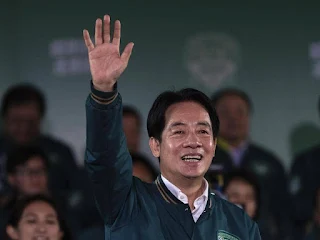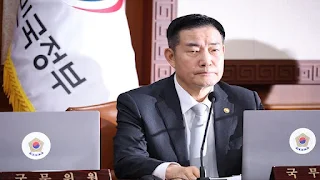Lai Ching-te, whom Beijing describes as a "serious threat" because of his positions in favor of Taiwan independence, won the presidential elections that took place on the island on Saturday, according to the semi-final results of the poll.
The outgoing Vice President, who belongs to the Progressive Democratic Party, received 40.2 percent of the votes, according to these results , which include 98 percent of the polling stations.
“The Taiwanese people have successfully resisted efforts by external forces to influence these elections,” Lai said in his first statement after his victory, referring to tensions with China , which has issued repeated warnings to the pro-independence camp and hinted at crushing “resolutely attempts at Taiwanese independence, whatever their form.”
He continued: “I want to thank the Taiwanese people for writing a new chapter in our democracy,” adding: “We are telling the international community that between democracy and tyranny, we will stand by democracy,” pledging to defend his country from China’s “intimidation.”
At the same time, he pledged to maintain peace and stability in the Taiwan Strait and "continue exchanges and cooperation with China."
His main opponent, Yu-A (66 years old), the candidate of the Nationalist Kuomintang Party, which calls for rapprochement with Beijing, received 33.4 percent of the votes, according to figures announced by the Central Electoral Commission.
He admitted his defeat to his supporters and said, "I made everyone sad. I offer our deepest apologies for that. I'm sorry. We bear responsibility."
He added: "I respect the final decision of the Taiwanese people I congratulate Lai Ching-te and Siao Pi-chim (for the position of vice president) on their election and I hope they will not disappoint the expectations of the Taiwanese people."
The third candidate, Kuo Wen-ji (64 years old), from the small Taiwan People's Party, which presents itself as anti-establishment, came in third place with 26.4 percent of the votes. He also admitted defeat and said, "Next time we will be able to gain power and take back the country."
South Korean Defense Minister Shin Won-sik on Friday called for maintaining operational capabilities to eliminate North Korea's leadership in an emergency in order to deter its nuclear threats.
Shin made the remarks during his visit to the Defense Development Agency in Daejeon, south of Seoul, days after North Korean leader Kim Jong Un announced that he has no intention of avoiding war with the South.
“In order to deter North Korea’s nuclear threats, we must be equipped with capabilities for comprehensive punishment and retaliation (KMPR) operations at all times,” the South Korean Defense Ministry quoted Shin as saying.
Comprehensive punishment and retaliation refers to an operational plan to eliminate North Korean leadership in the event of a major conflict. It is one of the pillars of the country's three-pronged deterrence architecture that includes the Kill Chain preemptive strike platform and the Korean Air and Missile Defense (KAMD) system.
Shen inspected the weapon systems being developed for the three-pronged deterrence system, such as the long-range air-to-surface missile and the low-altitude missile defense system, as well as advanced unmanned assets, including stealth and killer drones.
The North Korean leader threatened to destroy the South if it tried to use force against the North, while inspecting major ammunition factories earlier this week.





It is emphasizing readiness amid renewed threats and military developments.
ReplyDelete